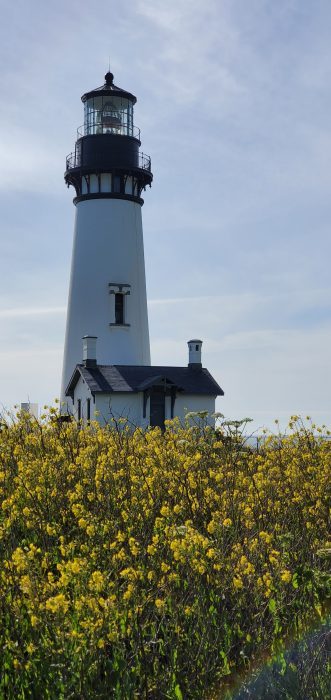
A collaborative lament by Serena Hicks & Julianne Wenner
Last weekend, Serena frantically listened to Voxer messages from her undergrad students while driving home from a short weekend in a non-red zone to finally see her daughter, a NICU nurse in Oregon. An alert blared on all four phones in the car as they rounded a wooded turn.
So Misted. So Lush.
A wildfire.
Evacuate.
The fire had sparked just a few miles through the last bit of blue sky behind them. What started as relief ended in days of obsessively checking InciWeb for updates about the fire that creeped closer to Serena’s daughter–her house, the hospitals with babies who might need to be evacuated, family who got out before their home on the river dusted the ground with ash, the teenage boy dead in a car with his dog on his lap.
This is why we’re not ok.
Back home, Serena’s future teachers read about how the study of social studies is really the study of how humans survive, thrive, evolve, and devolve. How have you experienced these issues? she asked her students. They write about alcoholic fathers, mothers who turn tricks to keep the electricity on, starting the food pantry on campus so that they will have food in their own pantry since losing a job.
They write about the pain of not noticing how blind they were to what others carry.
This is why we’re not ok.
Meanwhile, Julianne’s daughter’s face crumples as she says, “Mom, I don’t want you to be my teacher anymore.” Julianne doesn’t want to be her teacher anymore either, or for the other four little kids in their remote-learning pod pinky-sworn til January.
Even though it was something she was trained for.
Even though she loves these kids and wants them to continue learning.
So she teaches, because this is the control she can have, and this is how she can keep these kids and their families safe.
This is why we’re not ok.
One of the kids in the remote-learning pod is Black. Her mom is white. They are shaken by the violence against Black lives, their Black lives. The white kids want to understand how someone could hate their beloved friend because of her skin color. They want to understand why their friend is scared, show her love in the way she needs it right now. They want to understand why people in power don’t seem to want to protect their friend. The adults are trying, scrambling, looking for the right books, the right TV shows, the right YouTube videos, the right conversations that will show all of these beautiful kids the compassion, justice, and power they can have in this world.
That we want for them in this world.
But we feel we are failing.
This is why we’re not ok.
We take a break from grading to scroll for a happy puppy, a silly kitty, the picture of some friends celebrating; instead we see rules we don’t understand: You can’t stand. You can’t sit. You can’t raise a fist. You can’t kneel. You may not even be able to vote. Power is limited to what we understand is personal power, because the powers have betrayed us.
The faces on Zoom wait for us to provide some sort of magic to get us out of this hell. They come to class, but what they are looking for is beyond the content we teach. We’re supposed to know what to do. This is the place where they learn. Where they study, where they connect with zombie eyes that haven’t slept either. How can we not know how to make this right? At least for them.
This is why we’re not ok.
Teachers have been asked to walk the plank of limited technology thanks to a deal someone who isn’t in the classroom made in a consumer economy. Students are not a consumer economy. We have been asked to redesign instruction with a pick and hammer when just outside the school doors and a little to the right– a Home Depot of real-world resources. And while we are depressed and rage at the dehumanizing stories of teachers who “had all summer to prepare,” we create masterpieces with a pick and a hammer. Our students need what we build for them. They need us.
We recognize our privilege: We have a roof over our heads. We have jobs that are (at least for now) secure. We have food. Our families are healthy.
So we feel like we should be doing more: Helping. Making things. Donating. Marching.
But we can’t. We are to-the-soul tired.
Which makes us feel guilty for not doing more.
And being more.
We wonder who else feels this way, but we don’t want to bog them down with our garbage.
Everyone has enough garbage in 2020.
And because everyone has enough garbage, because we recognize our privilege, and because there is something we can do — teach — this is what we do.
We try to be OK for our students.
We try to be OK for our kids.
We try to be OK for our friends.
We sink into the lesson planning, program planning, responding to students, fighting for what we feel is best for our students in our small corner of the world. We tinker with calendars and links until they’re just right. We joke, send goofy gifs, and insert Bitmojis of us grinning from ear to ear so others can smile.
So others can have a break from their garbage.
So someone can be ok.
We have not slept through the night since March. We have not stopped worrying, planning, sighing, or crying over the small alert reminding us that our password will expire Sunday.
We don’t want a cape for being the hero (but maybe we’d hang one on the wall).
We don’t want a pay raise (we’d just spend it on hand sanitizer).
We aren’t demanding additional funding (we are too tired to demand anything).
This is our fondest wish:
That our password will expire.
That no one will notice.
That we can’t log in,
And that we can rest.
Because we are not ok.


